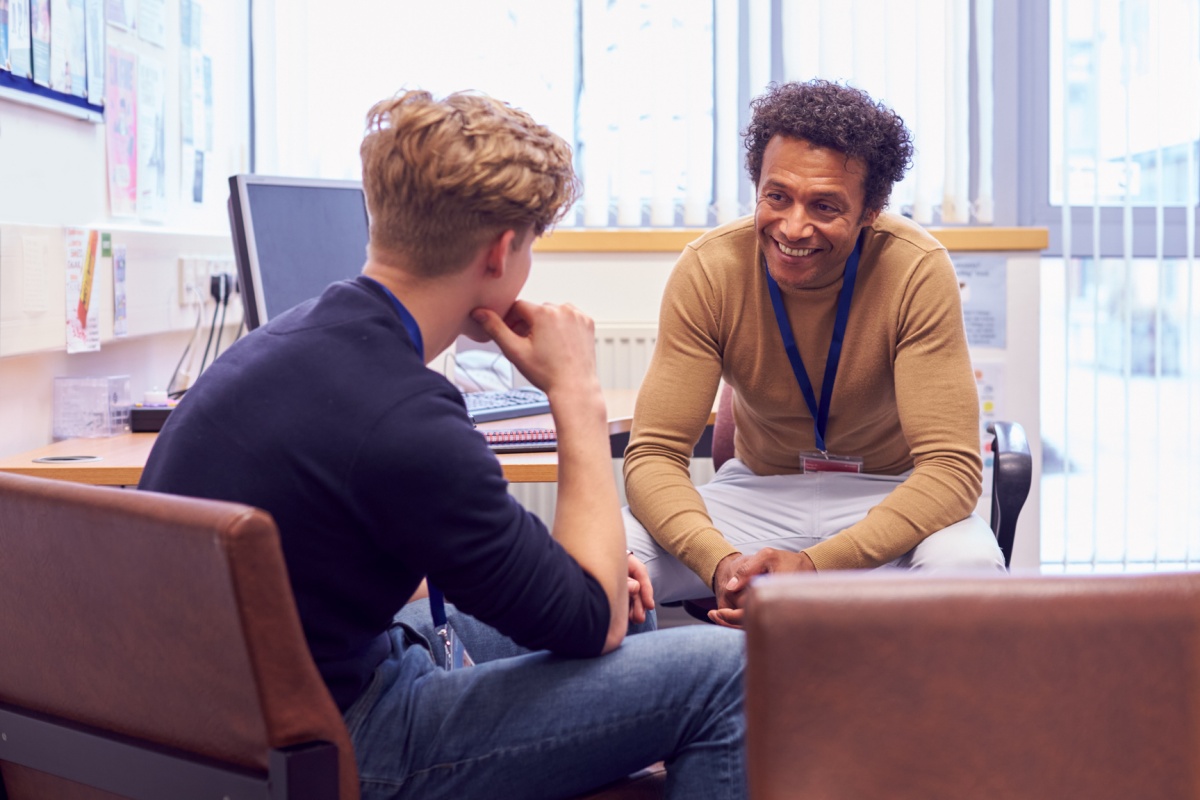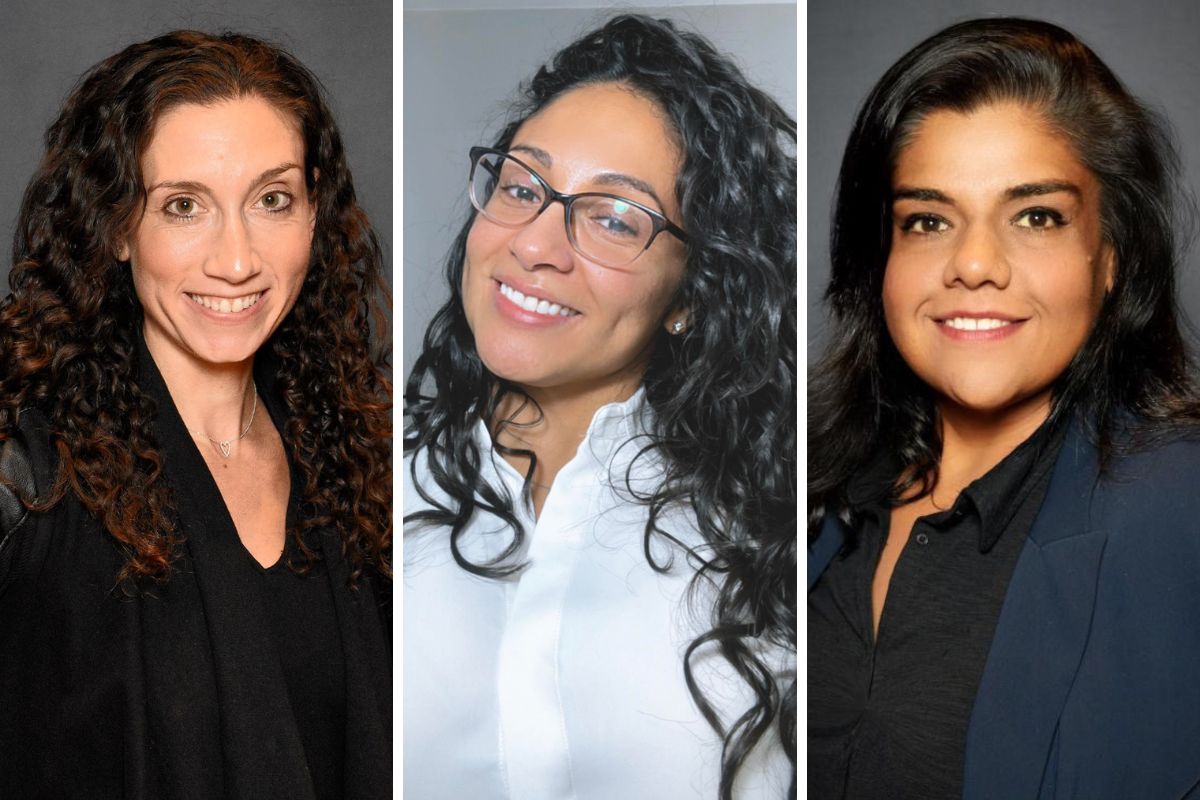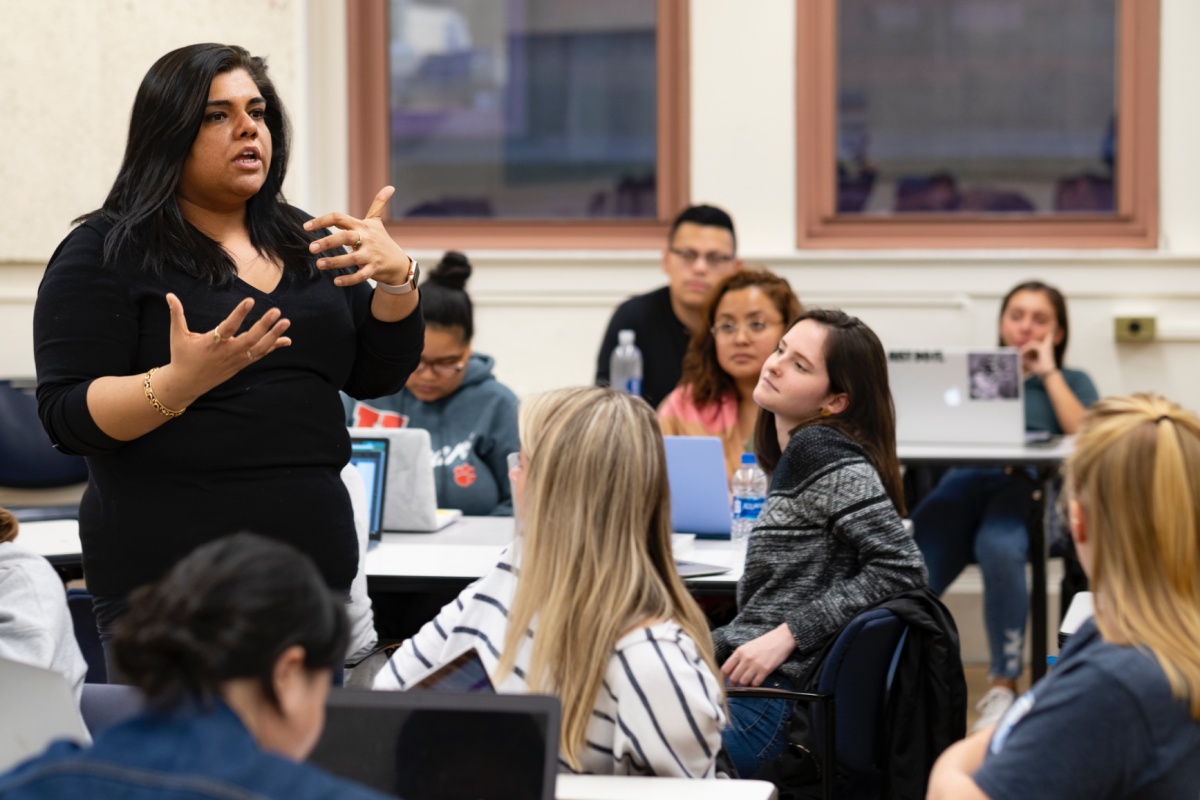Student success isn’t a simple equation, between limited resources in schools and varying conditions at home, with challenges as severe as food insecurity and routine as picking the right science class. Teachers know this reality well. Enter the school counselor, a key player in cultivating success and growth among students facing a variety of unique challenges in their lives, and during a critical inflection point for young people in the United States.
Between the dismantling of affirmative action, the assault on inclusive education in certain schools, and the persistent pains of inequity and growing up, students need more support now than ever before — and often, those answering the call through school counseling are former teachers themselves.
“I really believe that teachers make the best school counselors,” says Becky Reed (Ph.D. ’17, Ed.M. ’09), a lecturer in the Counseling Psychology program at Teachers College, Columbia University. “Teachers come in with a strong understanding of what it means to be an educator, the school system, and how students function in the classroom and at home…Former teachers come in with all of this knowledge and skills that help them understand not only the system, but how to work with individual students.”

In TC’s School Counseling program, faculty like Reed work closely with future school counselors through a social justice and multicultural curriculum that prioritizes comprehensive, hands-on learning to prepare students for the rewarding yet challenging profession. Often, those called to serve as school counselors are former teachers who are “drawn to the socio-emotional components of working with students, and have a curiosity and compassion” that drives them.
“School counselors are the glue. They are filling in the gaps, in a lot of ways, in the larger ecosystems of education,” explains Reed, herself a TC grad. “School counselors offer support, break down barriers, create interventions, and support families, students and teachers in order to make sure the learning can happen.”
[Learn more about TC’s new online master’s in School Counseling for Summer 2024 here.]
Transitioning from teaching to school counseling was the path for Denise Herrera (Ed.M. ’22, School Counseling), who earned an advanced certificate from TC’s College Advising program after working as a special education teacher in New York City schools for nearly 10 years. Working in a community with a high percentage of English language learners, Herrera desired to help address additional needs that could improve learning and student development.
“I’m grateful to have the space now to do that as a counselor, since teachers don’t always have the space to do that,” explains Herrera, who notes her special education background allows her to more easily and effectively intervene in challenges. “Because I have a teaching and special education background I’m more confident in the suggestions that I’m able to provide to teachers and students, and see where the gaps are.”

Becky Reed (Ph.D. ’18, Ed.M. ’09), a lecturer in Teachers College’s Counseling Psychology program; Denise Herrera (Ed.M. ’22, School Counseling).; Riddhi Sandil, Associate Professor of Practice. (Photos courtesy of those pictured.)
In addition to her teaching background, Herrera consistently applies the pedagogy from TC’s School Counseling program every day while working with students struggling with the challenges that come with immigrating to a new country, learning English and more. (Approximately 5 million students in U.S. public schools are English language learners, with this year’s numbers still emerging due to the ongoing migrant crisis.)
“I loved that [TC’s] material had diversity, equity and inclusion built into it,” Herrera says. “Every single course had [DEI] integrated in a solid, tangible way that you could incorporate in the classroom...You walk away with so much information.”
Herrera is not alone, and in fact one of many school counselors tasked with supporting a diverse school population. But teaching experience and equity-driven preparation together can set up aspiring school counselors for success.

Prepared for the complexities of today by leading scholars in multicultural counseling, TC grads “become familiar with the ecological as well as the developmental factors that contribute to students’ psychological well-being and academic success,” explains Riddhi Sandil, Associate Professor of Practice in TC’s Counseling and Clinical Psychology department. “Our graduates are self-aware and reflective about social and cultural constructions, and issues related to identity and group membership.”
For school counselors, the profession is more than simply a job; like with teaching, for many it is a calling — one that demands a commitment to improving the lives of their students, no matter how complex the challenges at hand.
So what makes a good school counselor? While teaching experience can help, Reed’s noticed a pattern among those driven to the field. “A really great school counselor is open to continuous learning, and does not expect themselves to be a constant expert,” explains Reed, who also emphasizes the importance of curiosity, a collaborative spirit and passion.
Herrera concurs, speaking during a short break in her office. “You need to be someone who can step into the world the student is in,” she says. “If students don’t have that kind of support at home, you know students will have it here with their counselors.”

